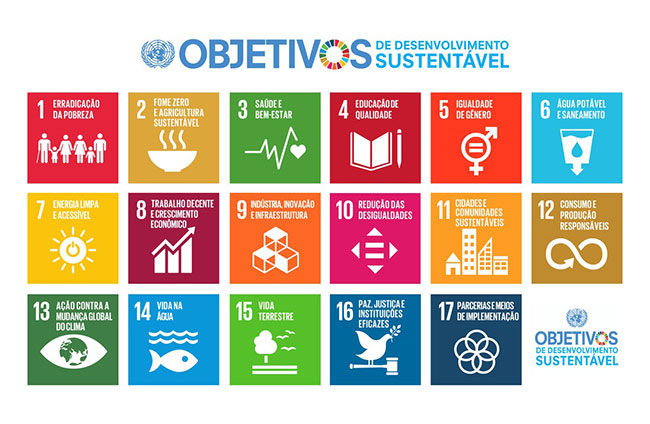The 17 Sustainable Development Goals (SDGs) were created by the UN in 2015 and are a way for organizations, companies, governments and NGOs to commit to collective action to solve social, economic and environmental challenges.
If you're interested in sustainability, you've probably heard about the SDGs. However, it's worth giving a little background to the creation of these goals in order to explain Diagonal's role in advancing the sustainable development agenda in Brazil and around the world. In this article, you'll learn about the 7 SDGs that Diagonal works on directly - as well as the full list!

What are the Sustainable Development Goals anyway?
The United Nations exists to get countries to cooperate, and today it is made up of the governments of 193 countries. In 2015, the countries came together to launch the 2030 Agenda for Sustainable Development, a collective strategy to deal with the challenges of contemporary economic growth, alongside the urgency of action for social justice and environmental preservation. It is a global strategy to converge efforts to advance these agendas.
All in all 17 Sustainable Development Goals with ambitious and interconnected subgoals that address the main development challenges faced by people in Brazil and around the world. Among the main ones: ending poverty, protecting the environment, mitigating climate change and ensuring that all people can enjoy peace and prosperity. All this by 2030. We have less than 8 years until then!
How does Diagonal work towards the SDGs?
Diagonal works directly to implement activities that generate a positive impact, reduce risks and improve the quality of life of people in vulnerable situations.
What's more, our services show that our commitment to social transformation is part of our day-to-day work. We have expertise in Integrated Social Management, Land Regularization, Housing and Environmental Sanitation, Sustainability and Social Responsibility and City Management - all topics addressed by the Sustainable Development Goals.
The positive impact of our actions is proven by our B Corporation certification. System B is a global movement to build a more inclusive, equitable and regenerative economic system for people and the planet, which certifies companies with the best practices for the world.
It's worth noting that we seek to promote the development of all the SDGs, but our technical and social work has everything to do with 7 of them. Check them out below!
1: Eradicating poverty
Our concern for social issues goes far beyond words. We work daily to transform vulnerable territories, providing better living conditions through technical and social work integrated with projects. We are concerned with mobilizing agents to implement programs and policies to reduce poverty in various dimensions.
In this Sustainable Development Goal, Diagonal is directly involved in promoting the subgoals of the 2030 Agenda, such as:
1.4 Ensure that all men and women, particularly the poor and vulnerable, have equal rights to economic resources, as well as access to basic services, ownership and control over land and other forms of property, inheritance, natural resources, appropriate new technologies and financial services, including microfinance.
1.5 By 2030, build the resilience of the poor and those in situations of vulnerability, and reduce their exposure and vulnerability to climate-related extreme events and other economic, social and environmental shocks and disasters.
5: Gender Equality
As part of the technical social work that Diagonal carries out in the territories, our work is always allied to human development, including female empowerment. In the context of interventions in the territory, we carry out actions to encourage entrepreneurship by women and support solo mothers, in addition to our team, which is made up of 75% women.
In this Sustainable Development Goal, Diagonal is directly involved in promoting the subgoals of the 2030 Agenda, such as:
5.5 Ensure women's full and effective participation and equal opportunities for leadership at all levels of decision-making in political, economic and public life
5.a Carry out reforms to give women equal rights to economic resources, as well as access to ownership and control over land and other forms of property, financial services, inheritance and natural resources, in accordance with national laws.
6: Drinking water and sanitation
This is one of Diagonal's main areas of expertise: implementing and maintaining the basic sanitationThis includes everything from the technical work of the construction site to the engagement and environmental awareness of the population.
Condominium, one of the Diagonal Group's companies, specializes in the Condominium Sewerage Model and aims to simplify works and guarantee the optimization of the Public Sewerage Network infrastructure.
In this Sustainable Development Goal, Diagonal is directly involved in promoting the subgoals of the 2030 Agenda, such as:
6.2 By 2030, achieve access to adequate and equitable sanitation and hygiene for all, and end open defecation, with special attention to the needs of women and girls and those in vulnerable situations.
6.b Support and strengthen the participation of local communities to improve water and sanitation management.
8: Decent Work
Diagonal's work in the field goes far beyond the territory and is dedicated to people. That's why we promote decent work in our methodology. We work to develop productive inclusion, supporting people in their search for qualifications and new jobs, as well as encouraging entrepreneurship.
With this objective in mind, Diagonal is directly involved in promoting the subgoals of the 2030 Agenda, such as:
8.3 Promote development-oriented policies that support productive activities, decent job creation, entrepreneurship, creativity and innovation, and encourage the formalization and growth of micro, small and medium-sized enterprises, including through access to financial services.
10: Reducing inequalities
This is the cause at the heart of Diagonal. For us, sustainable development in all its forms only exists if everyone who is part of society has a dignified life and existence. Our extensive work on major social projects in 21 countries in Latin America, Africa, Asia and Oceania has given us a broad view of inequalities in the world and strengthened our will to change this scenario. In this Sustainable Development Goal, Diagonal plays a direct role in driving forward this Agenda 2030 goal:
10.b Encourage official development assistance and financial flows, including foreign direct investment, to States where the need is greatest, in particular the least developed countries, African countries, small island developing States and landlocked developing countries, in accordance with their national plans and programs
10.2 By 2030, empower and promote the social, economic and political inclusion of all, regardless of age, gender, disability, race, ethnicity, origin, religion, economic or other status.
11: Sustainable cities and communities
Our work in so many territories allows us to say that the struggle for the city development and sustainable communities is our main cause. For 30 years we have been prioritizing housing. With this goal in mind, Diagonal is directly involved in promoting the 2030 Agenda's subgoals, such as:
11.3 By 2030, increase inclusive and sustainable urbanization and capacities for participatory, integrated and sustainable human settlement planning and management in all countries.
11.5 By 2030, significantly reduce the number of deaths and the number of people affected by disasters and substantially reduce the direct economic losses caused by them in relation to global gross domestic product, including water-related disasters, with a focus on protecting the poor and people in situations of vulnerability.
11.1 By 2030, ensure access for all to safe, adequate and affordable housing and basic services and urbanize slums.
17: Partnerships and means of implementation
We believe that transforming territories is only possible through co-creation. Doing things together guarantees the construction of more effective, long-lasting and sustainable solutions.
It is part of our day-to-day work to make partnerships possible with the aim of promoting all the sustainable development goals targeted by our sector, such as those mentioned here: eradicating poverty, clean water and sanitation, reducing inequalities and sustainable cities and communities.
Diagonal was founded in the 1990s and has been a pioneer in social management, with ESG as a pillar since its inception. In 30 years of work, we have worked with organizations in the first, second and third sectors, involving different segments of the economy. In this Sustainable Development Goal, Diagonal plays a direct role in driving forward this Agenda 2030 subgoal:
17.17 Encourage and promote effective public, public-private and civil society partnerships, based on experience of the strategies for mobilizing resources from these partnerships.
See below for a list of all the SDGs - Sustainable Development Goals:
- SDG 1: Eradicating poverty
- SDG 2: Zero hunger and sustainable agriculture
- SDG 3: Health and well-being
- SDG 4 Quality education
- SDG 5 Gender equality
- SDG 6 Drinking water and sanitation
- SDG 7. Clean and affordable energy
- SDG 8: Decent work and economic growth
- SDG 9 Industry, innovation and infrastructure
- SDG 10: Reducing inequalities
- SDG 11. Sustainable cities and communities
- SDG 12. Responsible consumption and production
- SDG 13. Action against global climate change
- SDG 14 Life in water
- SDG 15. Terrestrial life
- SDG 16. Peace, Justice and Effective Institutions
- SDG 17. Partnerships and means of implementation
